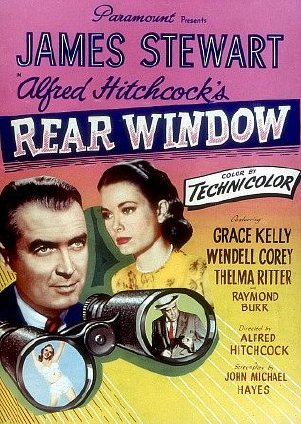Steven Spielberg, Dreamworks Sued For Disturbia's Similarities To Alfred Hitchcock's Rear Window

When is it playful homage and when it is copyright infringement? The basis of a new lawsuit alleges that Steven Spielberg and Dreamworks lifted the plot, characters and protagonist for the studio's 2007 hit, Disturbia, from the 1954 Alfred Hitchcock classic Rear Window. Note that Spielberg personally did not work as a director or producer on this production. More specifically, the lawsuit claims that Dreamworks should have sought the rights to the short story, "Murder From a Fixed Viewpoint," the source material from which the Hitchcock film was adapted.
"In the Disturbia film the defendants purposefully employed immaterial variations or transparent rephrasing to produce essentially the same story as the Rear Window story," the lawsuit said.
When Disturbia was released, comparisons between the two films were widespread amongst critics and the marketing did little to hide the similarities, going so far as to encourage them. Perhaps our readers can clarify, but according to Wikipedia and other sites, it was the short story, "It Had to Be Murder," written by Cornell Woolrich, the same author as "Viewpoint," that was the basis for Rear Window. In 1990, a copyright case regarding "Murder" and future movie rights went to the U.S. Supreme Court, with the ruling going in favor of the short story's owner, a literary agent named Sheldon Abend. The Sheldon Abend Revocable Trust is at the center of this new lawsuit as well.
Rear Window has inspired countless films and TV shows since its release. Brian De Palma arguably and infamously made a career out of borrowing from this film (see Body Double and Sisters) and Hitchcock, but Disturbia went the extra mile. The phrase "modern update" is applicable. As the lawsuit points out: Both are murder mysteries beginning with a man who, while peering from his window, witnesses strange behavior in the home of his neighbor. Switch up James Stewart's leg injury for Shia LaBeouf's house arrest ankle monitor and so forth.Discuss: What do you think? Obviously, the suing party is seeking compensation, but do the similarities warrant a lawsuit? Homage or plagiarism?
